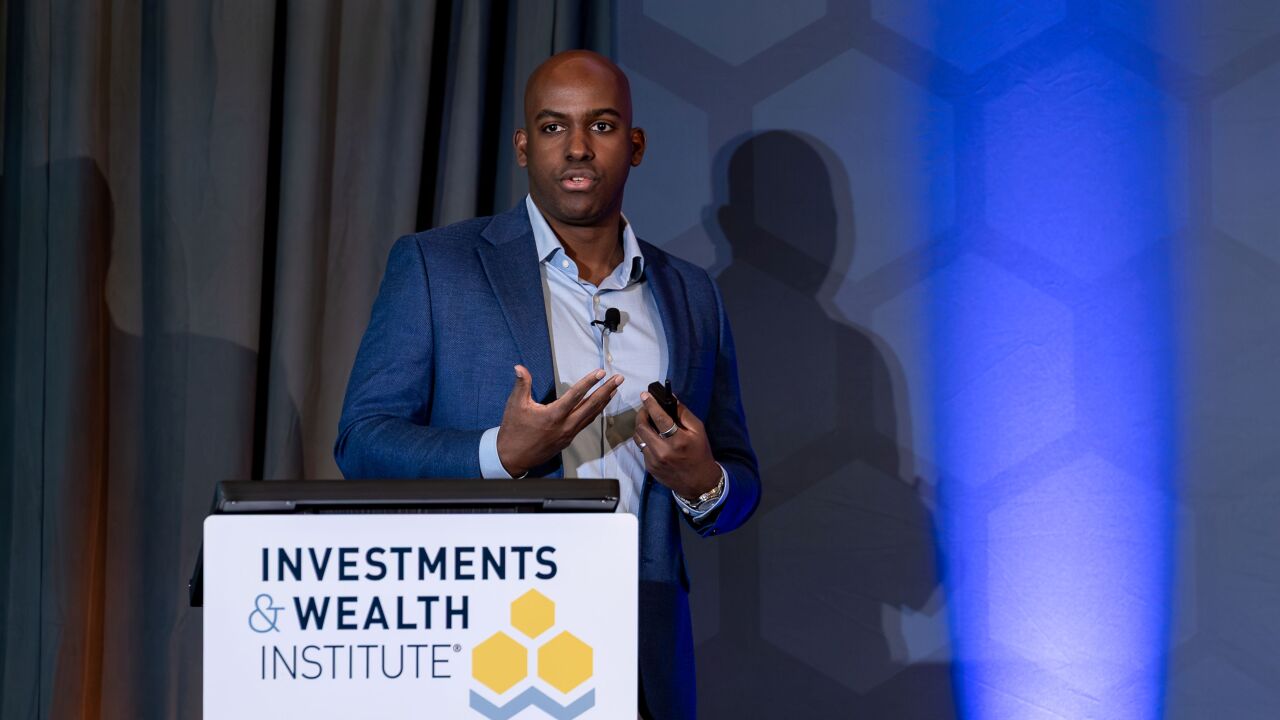The U.S. Securities and Exchange Commission is examining how both social media influencers and AI technology can pose conflicts of interest, potentially steering young investors into risky financial decisions.
The concerns, raised during an SEC Investor Advisory Committee meeting on June 6, come at a time when many young investors have
"Those who promote the offer and sale of securities cannot mislead or defraud the public, whether you were doing it in the 1930s or you're now doing it on social media. Fraud is fraud," said SEC Chair Gary Gensler during the webcast. "I'd like to remind the everyday investors tuning in: A celebrity's endorsement doesn't necessarily mean that an investment product is right for you, or even frankly, that it's legitimate."
READ MORE:
SEC cautions firms on using social media influencers to steer retail investors
One former SEC official during the meeting noted influencers like Keith Gill, widely known as Roaring Kitty, who created a call-to-action with retail investors in 2020 to
"Social media can significantly impact the value of stocks, as was evidenced in the meme stock trend frenzy in 2021 and Roaring Kitty recently resurfacing," said Paul Roye, former director of the SEC's division of investment management and former senior vice president of Capital Research and Management Company in Los Angeles.
"These social media platforms have very low barriers to entry, making them appealing to scammers as well as people who have hidden agendas and are undisclosed conflicts of interest," he said during the session. "Consequently, it is difficult for retail investors to distinguish between content from truthful regulated firms, and content from legitimate amateur investors, and content from deliberate fraudsters."
READ MORE:
While the SEC does not have direct oversight of social media influencers, it can clamp down on financial companies that mislead investors by hiring these influencers without disclosing it's a paid promotion or to drive up a stock.
"If you promoted something, you have to say the source of the payment that you got, the nature of it, who you got it from," Gensler said. "Don't mislead the public. Further, if you take money to promote a security, you must disclose that you have received consideration for the promotion, as well as the amount of such consideration."
SEC, Treasury Department weighing how financial firms use AI tools
Gensler also raised other potential conflicts of interest with financial firms using machine learning and AI technologies.
"When it comes to robo-advising and broker jobs, companies today can use this technology to make predictions about each and every one of our behaviors in response to targeted messaging, targeted pricing, targeted products," Gensler said. "It's important to recognize, however, that if an AI model optimization function — this is the math behind the model — but if the optimization function incorporates something about the platform, that may be a conflict."
READ MORE:
The conflicts of interest Gensler referred to can include a platform an investor uses through an advisor or broker that uses a machine learning model to "place their interest ahead of their investors' interest," creating financial harm.
The SEC proposed a rule in mid-2023 aimed at preventing conflicts of interest tied to the use of predictive data analytics by broker-dealers and investment advisors. The comment period closed in October 2023, but Gensler said Thursday that the SEC is considering reevaluating the proposal.
"Having received robust comments from the public and in this committee, I've asked staff to continue to consider the best next step, including the possibility of reopening or reproposing that proposal," he said.
READ MORE:
SEC Commissioner Hester Peirce cautioned however, that the SEC should not regulate new technology to the point it stifles innovation and blocks young retail investors from using new tools and avenues to invest early.
"We should not try to guard against fraud by choking off technologies that have benefited and could continue to benefit investors. … We should communicate with investors using those new tools, educating investors," she said. "We at the commission need to take a breath and focus on providing clarity to market participants, rather than embarking on a more aggressive agenda that seeks to stifle AI."
Separately on Thursday, the Treasury Department released a request for public comment on the uses, opportunities and risks of using AI in the financial services sector.
"Treasury is proud to be playing a key role in spurring responsible innovation, especially in relation to AI and financial institutions. Our ongoing stakeholder engagement allows us to improve our understanding of AI in financial services," said Undersecretary for Domestic Finance Nellie Liang in the release.






